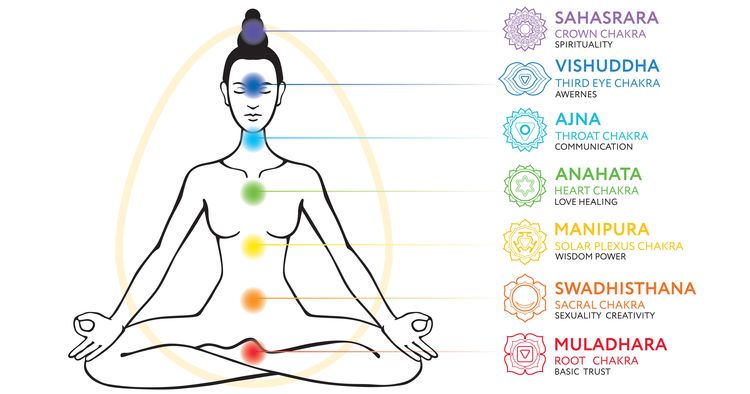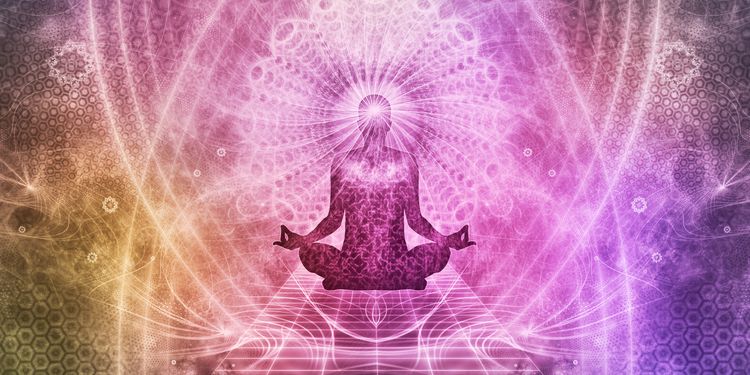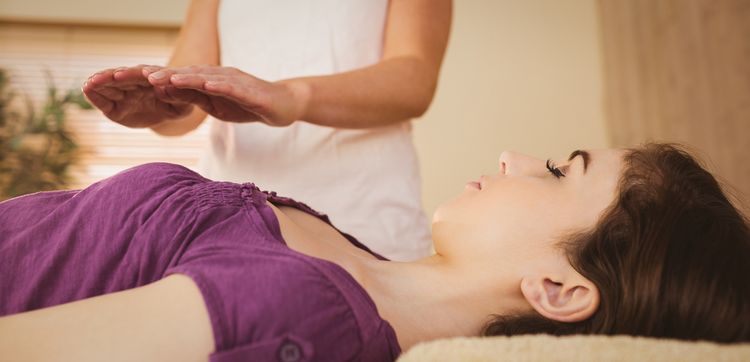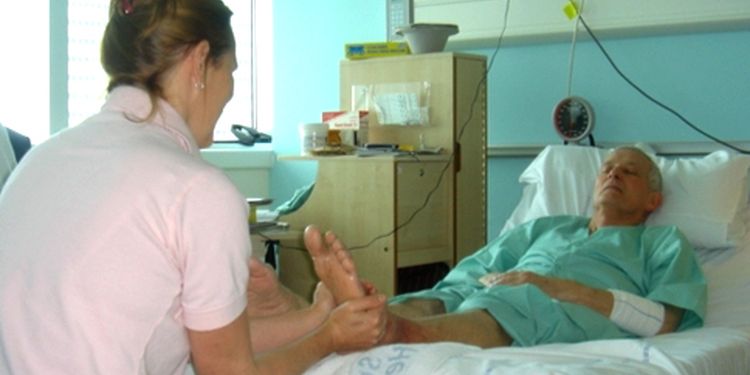What Exactly Is Reiki And Can It Help You?

The concept of reiki (pronounced ray-key) began in Japan. Translated from Japanese, it means “universal life force.” It’s a form of therapy in which a trained practitioner puts their hands lightly on or near a person and allows the “universal life force” to flow through them to that person. It’s believed to restore well-being and life energy.
Dr. Mikao Usui is widely thought to be the founder or discoverer of this healing work. As a boy, he attended a Buddhist monastery school. When older, he traveled to both the West and China to learn different types of healing and later developed a book entitled The Original Reiki Handbook of Dr. Mikao Usui. He opened a school in Tokyo in 1922 and is believed to have trained nearly 2,000 people, with only 17 of them reaching the level of reiki master. Some of those students went on to develop schools (or lineages) of their own.
As of this writing, reiki isn’t regulated and requires anywhere from a one-day training class to years of study and practice, depending on the level looking to be achieved. (The levels are I, II, and Master.) Although not currently a licensed discipline, it’s becoming more and more prevalent as a healing art or complementary alternative medicine. Often, massage therapists will also have training in this area. But one need not be a massage therapist to study or practice reiki. It has been used in a multitude of settings, from massage therapy offices to hospital operating rooms.

What Does Reiki Do?
As with acupuncture or acupressure, reiki is used in conjunction with the chakra line-up in the body. Chakra comes from Sanskrit, meaning “wheel.” Chakras are thought to be wheels of energy in the body. There are seven main chakras, starting at the base of the spine (root chakra) and going up to the top of the head (crown chakra). Reiki focuses on these areas and is most often used for relaxation and stress relief. Any time I’ve received a session, I end up feeling like warmth is spreading from inside of me to outside; I get very calm and always sleep quite well (after the treatment and sometimes during).
Reiki utilizes the patient’s own internal healing system and can promote improved physical and mental health. The beauty of this is that one doesn’t necessarily need a practitioner to receive the benefits. When receiving training from a reiki master, students also learn techniques that can be used for self-care/self-healing.

How Does Reiki Help?
When used in the operating room or as an antidote to everyday stressors, patients seem to see an increase in overall ease once a reiki session has been performed. Whether this comes from the practitioner’s presence or from the reiki itself is something that’s still unknown. What is known is that recipients often heal quicker and have less pain after a major surgical procedure if they underwent reiki treatment.
Reiki also approaches healing from a holistic viewpoint, meaning that the mind-body-spirit connection is paramount and that a person must be treated as a whole rather than merely the sum of their parts. Some studies have shown that it provides benefits like decreased heart rate, lowered blood pressure, a drop in stress hormones, and an uptick in immunity strength.

What Does Reiki Treat?
Reiki has been used with cancer patients to treat cancer-related fatigue. It can help with the overall psychological stress that comes with the diagnosis and treatment of cancer. At a minimum, it can help bring about a positive mental state that assists with healing outcomes.
Studies have shown that combined with massage, reiki can help dementia patients as well as infants. Both groups benefit from increased relaxation and lowered stress. UCLA study findings with stressed-out subjects indicate that reiki didn’t just decrease stress, it also helped relieve some anxiety and depression symptoms. Another study showed that reiki was effective in reducing pain.

Is Reiki Real?
Because there aren’t a lot of studies on reiki, much of the information surrounding it is anecdotal. Many people who have positive experiences with this healing practice are firm believers in its efficacy. Some large hospitals have reiki practitioners available for patients and their families during treatment and end-of-life situations.
A 2016 study in the journal Nursing showed that reiki reduced post-surgery pain for patients who’d had knee surgery. Smaller studies have shown that depression and fatigue in cancer patients who receive reiki decreases. A highly controlled study in the Journal of Orthopaedic Research revealed that cells in test tubes treated by reiki practitioners were able to grow better than those in the control group test tubes where reiki wasn’t done.
But some medical doctors, surgeons, and anesthesiologists consider reiki and its ability to help to be “magical thinking.” This may be due to the lack of long-term clinical trials or scientific studies to determine whether or not it’s a viable practice. Or it might be because it’s not a mainstream Western medicine treatment. At minimum, the argument is that “laying on of hands” isn’t part of an effective medical regimen.
Summary
Because reiki can’t really harm you in any way, it’s worth giving it a try if you’re at all curious about it. However, please note that it shouldn’t be used as a replacement for your normal medical care, nor should you skip a visit to your doctor just because you’re receiving reiki. It’s also good to let your medical team know of any alternative treatments you’re trying out.
